The Lithuanian Jewish Community’s series of virtual Sabbath telebridges continues this Friday, May 7, at 8:00 P.M. with a Zoom meeting with Rabbi Nathan Alfred of the European Union for Progressive Judaism. To participate, register here.
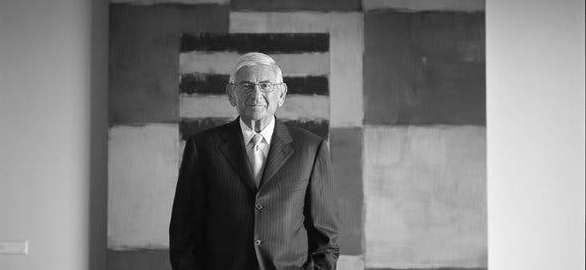
Litvak Philanthropist Eli Broad Dead at 87
New York Times newspaper reports Eli Broad, a businessman and philanthropist whose vast fortune, extensive art collection and zeal for civic improvement helped reshape the cultural landscape of Los Angeles, died last Friday at Cedars-Sinai Medical Center in Los Angeles at the age of 87.
Eli Broad was born in the Bronx on June 6, 1933, the only child of Jewish immigrants from Lithuania. When he was 7 the family moved to Detroit, where his father opened a dime store, the New York Times reported.
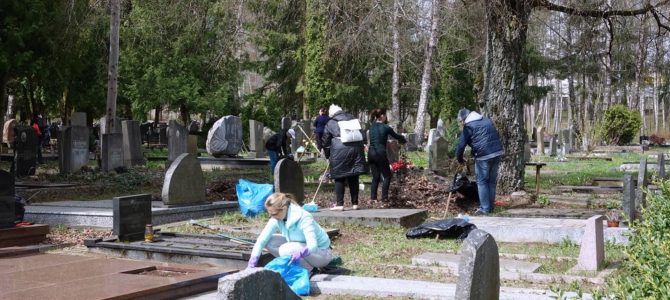
Thank You to the Students, Parents and Teachers of Sholem Aleichem
Lithuanian Jewish Community chairwoman Faina Kukliansky sends a big thank-you to all the students, parents and family members of students who responded to the call by the principal and teachers of Sholem Aleichem Gymnasium to come help clean up the Jewish cemetery on Sudervės road in Vilnius. The winter wasn’t kind to the cemetery and visitors have been few. Despite the cool weather and the fact it was Mother’s Day in Lithuania, many helpers arrived to pick up garbage and fallen branches and generally tidy the graveyard up for spring in the Lithuanian tradition of talka, a joint volunteer effort to put the environment in order. Students at Sholem Aleichem can also use the experience to get credits now required for community service, so to those of you who couldn’t make it, don’t be shy next time!
Thank you!
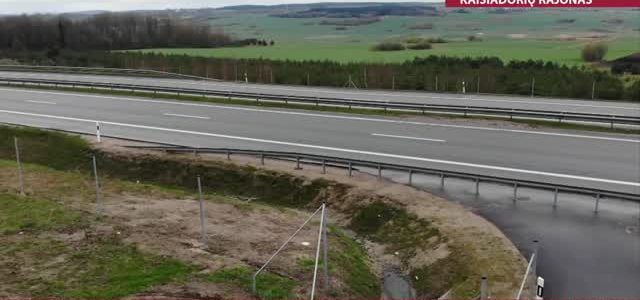
If a Genocide Happens in the Forest and No One Hears It…
That’s the question the news service of the LNK television channel in Lithuania faced Friday when they were investigating the case of a mysterious Holocaust site which vanished somewhere along the Kaunas-Vilnius highway during reconstruction.
The mass murder site in the Strošiunas forest, aka Vladikiškės forest, near Bačkionys village in the Kaišiadorys region is the mass grave of about 1,800 women and children from Žiežmariai, Žasliai, Kaišiadorys, Rumšiškės and the surrounding areas murdered on August 29, 1941, according to Lithuania’s Cultural Heritage Department. The Lithuanian Holocaust Atlas says the number was 784 people from the same locations, with other, larger mass murder and mass grave sites in the same immediate area.
The paved road to the Holocaust memorial was fenced across and the sign announcing it as a mass murder site was removed about six months ago during reconstruction of Lithuania’s busiest highway. This is the only access to the site in the Kaišadorys region near Žiežmariai. LNK said they received a complaint from the Lithuanian Jewish Community and looked into it. After receiving mixed comments from Lithuania’s Department of Vehicle Routes Directorate, the fencing blocking access was removed within two hours–just in time for the evening news broadcast–with the promise to replace the road sign marking the Jewish mass grave in the immediate future.

Sabbath with the IDF
Viljamas Žitkauskas and the Lithuanian Jewish Community invite you to attend a virtual Sabbath discussion called “The Road from Underground Fighters and Self-Defense Units to the Israeli Defense Forces” in Lithuanian starting at 7:00 P.M. on May 1 as Israel staggers from the Lag ba’Omer tragedy. Registration is required, click here.
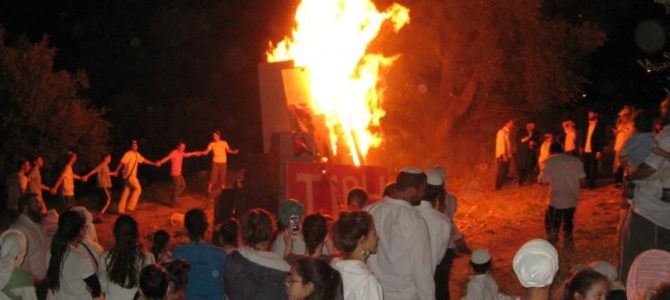
April 30 is Lag ba’Omer
Lag ba’Omer is a minor Jewish holiday celebrated with bonfires and an occasion for weddings and cutting children’s hair. It happens approximately one month after Passover, and the name means the 33rd day of the of the Omer count, on the 18th day of the Jewish month of Iyar, which is about the midpoint in time between Passover and Shavuot.
Lag ba’Omer, according to tradition, was the day on which the plague that killed 24,000 of Rabbi Akiva’s disciples stopped (Yebamoth, 62:72). For this reason it is customary to cease mourning customs of the Omer period, which include prohibition of marriages, cutting hair, and public expressions of joy such as singing and dancing. Some traditions hold that the period of mourning ends at Lag ba’Omer and others end it three days before the holiday of Shavuot.

Camp Counselor Training
The Lithuanian Jewish Community is offering training at our 2021 Madrich School for young people with Jewish roots who want to take part and become qualified camp counselors and supervisors for LJC camping and children’s events.
The curriculum includes:
* Knowledge of Judaism
* Educational activities
* Training on setting up camps
* Training for working with children
* Conflict resolution
* Many new topics
The training is intended for young people aged 15 and up.
Registration required by May 17, 2021. For more information, call +370 6788 1514. To register, click here.

Greece Takes Over IHRA Presidency from Germany
“As the years pass it is our duty to tell this story. To preserve memory, to learn the lessons, to never, never forget,” Greek prime minister Kyriakos Mitsotakis said in a video address on the occasion of Germany passing the IHRA presidency to Greece on April 1.
In the virtual ceremony ambassador Michaela Küchler handed over the role of IHRA chairman to ambassador Chris J. Lazaris, who stated: “The thread running through this presidency will be teaching the Holocaust, including combating denial and distortion in the new fields now opened by the net.”
The Greek deputy prime minister, the minister of foreign affairs and the minister of education and religious affairs added voices of support in the video, underlining Greece’s strong commitment to the mission of the IHRA.

Happy Birthday to Eta Gurvičiūtė
Dear Eta,
We congratulate you on your energy and vitality. The Lithuanian Jewish Community wishes you good health and warmth every year. You turned 100 last year and received greetings from the city in the name of all residents of Vilnius. This year you have enchanted us all and inspired everyone with your smile, sincerity, clear memory and unfading sense of humor. You are an example to all of us.
Mazl tov! Bis 120!
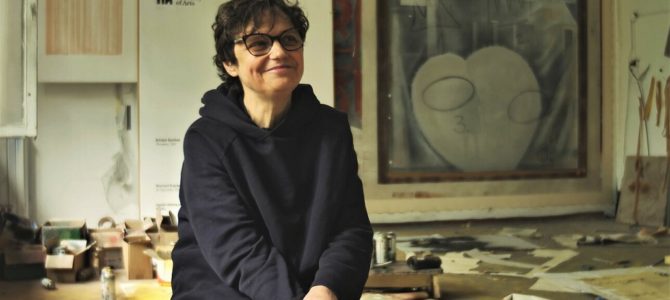
Documentary about Eglė Ridikaitė and Jewish Culture
LRT.lt
The Lithuanian Culture Institute and the Contemporary Arts Center in Vilnius are preparing to show a video documentary called “Jewish Vilnius in the Work of Artist Eglė Ridikaitė,” the Lithuanian Culture Institute announced in a press release.
The story directed by Mikas Žukauskas looks at the work of Lithuanian National Culture and Art Prize recipient Eglė Ridikaitė and at her artistic method of confronting difficult topics. Her cycle of paintings “We Are Guests” pictures fragments of the Great Synagogue in Vilnius uncovered by archaeologists and her sense of space within the razed synagogue. This is one of the rare cases where Lithuanian contemporary art addresses Jewish historical memory and heritage. Her works have drawn international attention.
The premiere of the short on April 28 will include a discussion titled “In Jewish Vilnius and Elsewhere: Contemporary Art and Historical Memory.” Participants will include professor of architecture Amnon Bar Or and the artist Dora Zlek Levy from Israel, Vilnius Museum director Rasa Antanavičiūtė and art history professor Adakhiar Zevi from Israel. Architecture historian Ūla Tornau, cultural attaché to the United Kingdom, will moderate.
Full story in Lithuanian here.

April 23rd Marked 301st Birthday of Vilna Gaon
April 23 is the traditional date of the birthday of the Vilna Gaon, the most outstanding scholar of sacred Jewish texts in the modern era. Last year Lithuania was supposed to celebrate his 300th birthday with fanfare, but public events were canceled due to fears for public health.
YIVO’s Encyclopedia of Jews in Eastern Europe says the Gaon, also known by the acronym GRA, was a spiritual giant, an example to future generations, a source of inspiration and the central figure in Litvak culture.
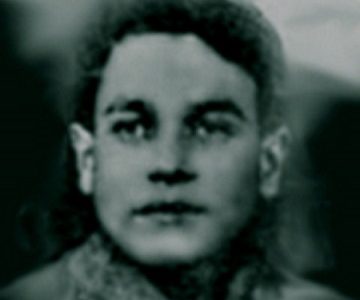
Hirsh Glik’s Birthday Was April 24
Hirsh Glik authored the words to the Jewish partisan hymn Zog Nit Keynmol. He was born on April 24, ca. 1921 according to the US Holocaust Museum, in Vilnius and belonged to the Yungvald circle of Yiddish poets. Later imprisoned in the Vilnius ghetto, he and fellow ghetto inmate and Vilnius native Rokha Margolis, both youth members of the FPO Jewish partisans group operating there, set his words to music and presented the song to the FPO leadership. He is thought to have been killed in 1944.

Bagel Shop Café Repoens April 29
The Bagel Shop Café will repoen at 11:30 A.M. on April 29 for coffee and lunch as a sidewalk café. We have a new coffee blend served as espresso and drip and a new menu. so come check it out.

Lithuanian Parliament Secretly Appoints New Head of Genocide
The Lithuanian parliament Thursday held a secret vote to appoint Arūnas Bubnys to a five-year term as head of the country’s Orwellian-named Center for the Study of the Genocide and Resistance of Residents of Lithuania. Seventy-six MPs voted for him, 34 against, 8 abstained and 2 MPs ruined their ballots in apparent protest.
Bubnys had been director of the Center’s Research Department. When he was nominated for the new position by the speaker of parliament, he told the assembly if he were appointed he would seek to restore the institution’s “recently damaged prestige” and to normalize the work atmosphere there.
He also pledged “to disperse and negate the artificial opposition between Center researchers and public organizations, to restore an atmosphere of confidence and exemplary cooperation with political prisoner, deportee and partisan institutions, and other organizations of those who suffered under the occupational regimes.”
Bubnys has worked at the Center since 2009 and was part of the successful push to have the last general director, Adas Jakubauskas, removed from the post by parliament for alleged mismanagement. In 2020 Bubnys ran for parliament on the ticket of the little-known political party Nacionalinis susivienijimas, or National Unification. According to his personal statement, he was graduated from the History Faculty of Vilnius University in 1985 and defended his doctoral dissertation in 1994.
Full story in Lithuanian here.
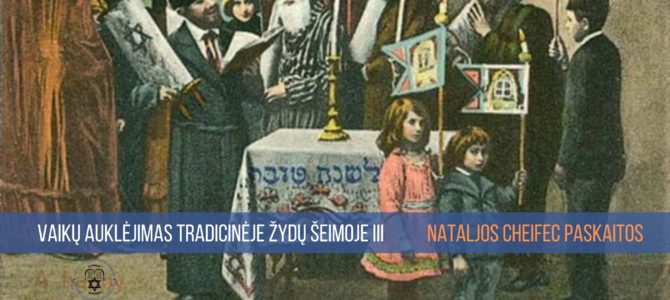
Small Children, Small Troubles
Kleiner kinder — klein zorgn, groise kinder — groise zorgn.
This Jewish saying means small children pose worries and bigger children bigger problems.
Natalja Cheifec invites you to her third lecture on the subject, “Raising Children in the Traditional Jewish Family,” in Lithuanian.
The lecture will teach you about innate features children have and how to encourage them, and why Jewish children end up learning their entire lives. The issue of whether children should pay attention to the opinions of others and which way to choose–to act like everyone else, or to go one’s own way–will be addressed.
Together with Natalja you will learn how to turn an enemy into a friend, how to teach children to behave morally and the effects loneliness and a bad environment have on children.
The lecture is free and will be held on the Lithuanian Jewish Community’s Zoom page from 5:30 P.M. to 7:00 P.M. on April 22.
The lesson will be repeated in Russian a week from now, on April 29.
To register, go to http://bit.ly/3arwHRn
#NataljosPaskaitos
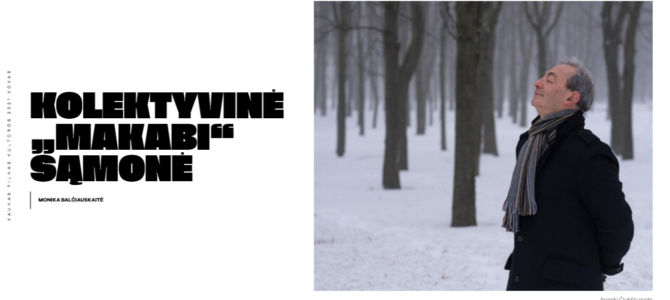
Makabi Collective Consciousness
The March issue of the magazine “Kaunas pilnas kultūros” [Kaunas Full of Culture] featured the history of the Lithuanian Makabi Athletics Club.
Gercas Žakas, chairman of the Kaunas Jewish Community, wrote on his facebook profile:
“I believe a number of Kaunas residents have discovered and come to love the publication ‘Kaunas pilnas kultūros’ which is published monthly in a small format but with rich content (incidentally, it’s free! While they say there’s no such thing as a free lunch, if you get this magazine with your lunch at a café, it’s worth the cost of your meal ![]() ).
).
“Sports was the theme for March, and I had the honor of being interviewed as well. We spoke about youth, soccer, the Jewish community, the history of the Makabi Athletics Club and about its resurrection in Lithuania. I am grateful to Kotryna Lingienė for the initiative, to Monika Balčiauskaitė for the sincere discussion and to Arvydas Čiukšys for his photographs and warm communication. I was echanted by these enthusiastic young people who are keen on their country’s history and seek to show the multiculturalism which enriches it.”
Condolences
Berelis Vaineris passed away April 19. He was born in 1923 and was a veteran of World War II, having served in the 16th Lithuanian Division. Our deepest condolences go to entire his family suffering this painful loss and to his wife Jelena and son Raimondas.
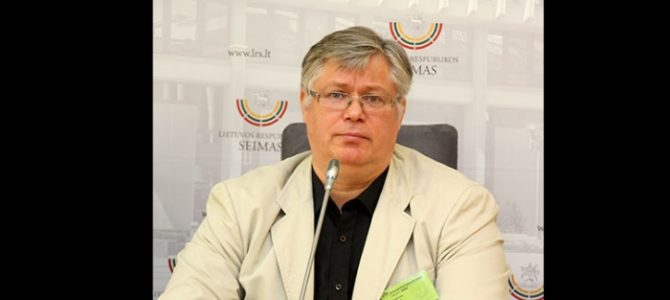
Lithuanian Educator Defends Lithuanian Nazis
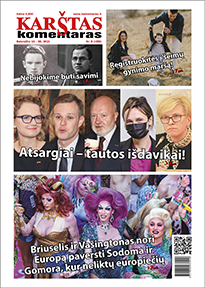 The Lithuanian biweekly newspaper Karštas Komentaras, which describes itself as a sort of insider’s view of Lithuanian politics, published as its main article in the current issue for April 16 to 30 an editorial titled on the cover “Let’s Not Be Afraid to Be Ourselves” by professor Gediminas Merkys, PhD habil. The subheading is “Will We Celebrate and How Will We Celebrate the Anniversary of the June, 1941 Uprising?” The cover image is a combined portrait of Lithuanian Nazi collaborators Jonas Noreika and Kazys Škirpa.
The Lithuanian biweekly newspaper Karštas Komentaras, which describes itself as a sort of insider’s view of Lithuanian politics, published as its main article in the current issue for April 16 to 30 an editorial titled on the cover “Let’s Not Be Afraid to Be Ourselves” by professor Gediminas Merkys, PhD habil. The subheading is “Will We Celebrate and How Will We Celebrate the Anniversary of the June, 1941 Uprising?” The cover image is a combined portrait of Lithuanian Nazi collaborators Jonas Noreika and Kazys Škirpa.
The newspaper singled out the following lines in the article for special attention as a separate text box:
The current colonial Lithuanian administration, it is to be believed, received an informal request from the supreme international master class to insure this important date not be marked officially in any way, i.e., in the name of the Lithuanian state. It was namely the competent patriotic director of the Center for the Study of the Genocide and Resistance of Residents of Lithuania [former director Adas Jakubauskas] and the Center itself which would have posed an obstacle to fulfilling this aforementioned order of political servility. For that reason the leadership of the Center had to be changed quickly and the institution itself immediately reformed.

Battle for the Soul of Lithuania on BBC HARDtalk
The BBC television interview program HARDtalk interviewed granddaughter of Lithuanian Nazi Jonas Noreika on April 16, 2021, and has been airing the episode this week.

The description for the episode called “Silvia Foti: When truth trumps family loyalty. Silvia Foti on grappling with family responsible for the Holocaust” reads:
“Silvia Foti’s grandfather was a Lithuanian man hailed as heroic patriot who paid with his life resisting the Soviets. But according to her, Jonas Noreika was no hero–he had the blood of thousands of Jews on his hands. She’s chosen to speak out, angering many in Lithuania. What happens when truth trumps family loyalty?”
Interviewer Stephen Sackur pressed Silvia Foti for documentary proof her grandfather was responsible for the murder of around 1,800 in Plungė–the entire Jewish population–in 1941. Foti went further and said she had reliable documents and sources showing Noreika was responsible for mass murders of Jews in Plungė, Telšiai and Šiauliai. Sackur was interested in Foti’s journey from that of a proud Lithuanian-American to the point where she had to confront Holocaust crimes within her immediate family. Foti countered the problem was much more widespread than her family, that the perpetrators and their descendants were still covering up the Holocaust in present-day Lithuania, and cited the Center for the Study of the Genocide and Resistance of Residents of Lithuania as one party involved in the nation-wide cover-up. She said her and Grant Gochin’s legal battles to have the plaque commemorating Noreika on the Lithuanian Academy of Sciences building in Vilnius was really a battle for the soul of Lithuania. Sackur asked whether Efraim Zuroff of the Simon Wiesenthal Center was correct in calling Lithuania the locomotive in the train of Holocaust distortion in Eastern Europe. Foti admitted she didn’t know the situation in Eastern Europe in general, but that this was possible.
An audio recording of the interview is available here and here.
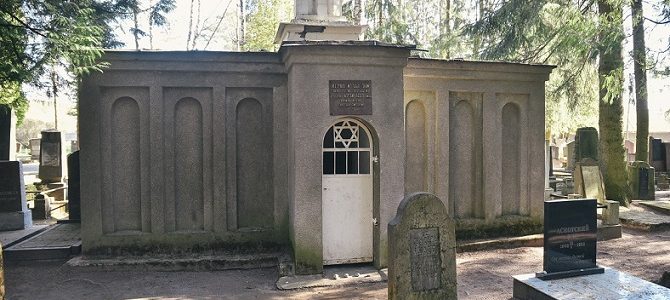
Appeal from Jewish Cemetery Administration in Vilnius
Photo: The Jewish cemetery on Sudervės road in Vilnius
Following winter and the spring thaw, we’ve noticed the effects of the weather and neglect, with toppled trees and fallen branches having knocked over several headstones, and there are fewer visitors due to restrictions on movement. Now that the quarantine restrictions have been eased, please visit your relatives’ graves and put them in order if need be and to the extent you are able.
We are asking those who are tending to graves to dispose of used candle containers, leftover plastic and other waste at the places intended for this. Also, if you leave tools or other items at the grave used to put sites in order, please make sure these don’t intrude on others or detract from the general tone of the cemetery. We would also like to invite people in charge of the following graves to take special care because the headstones have suffered in the last storm and so far no one has done anything to put them back in order:
Малинкович Лев Вениаминович 1897-1974
Шульман Гирш Абрамович 1881-1978
Fridman Chaja Zlata Jantelevna 1921-1978
Бер Иосиф Беняминович 1902-1985
Шмуйлович Рива Янкелевна 1903-1978
Бунис Люся 1922-1964
Серебрянный Лёня 1973-1975
For more information, contact the Vilnius Jewish Cemetery Administration, Sudervės raod no. 28, Vilnius, tel. +370 670 25750

